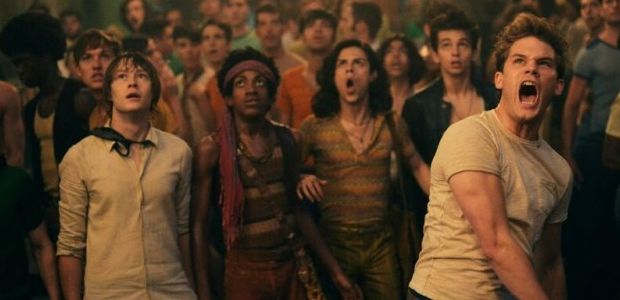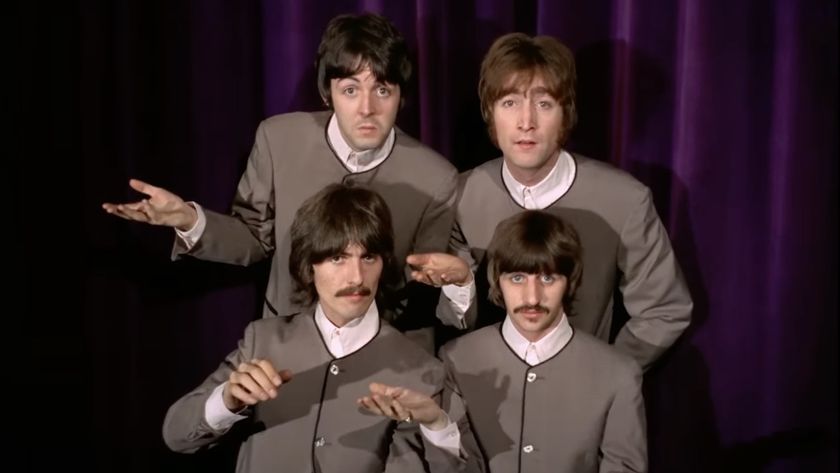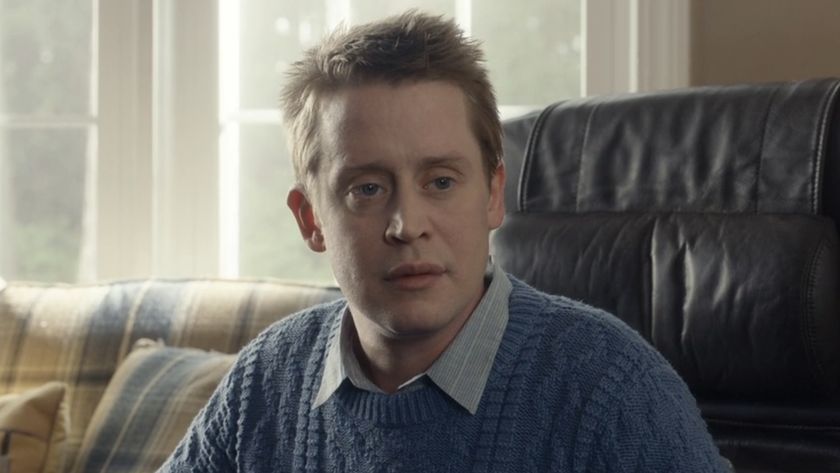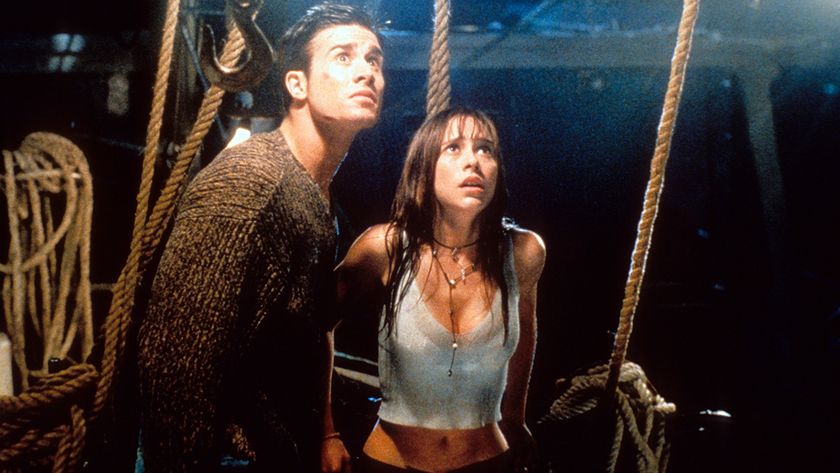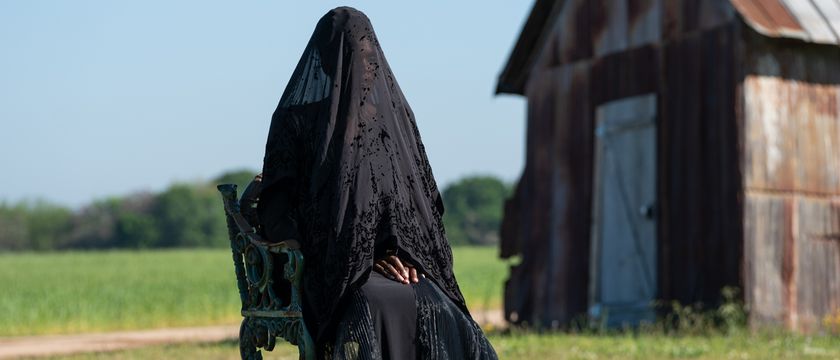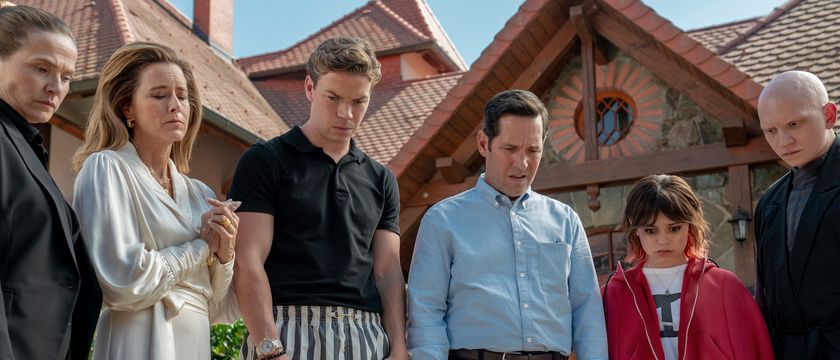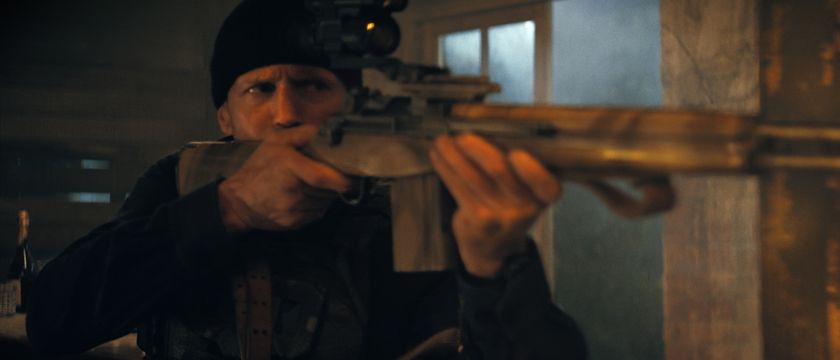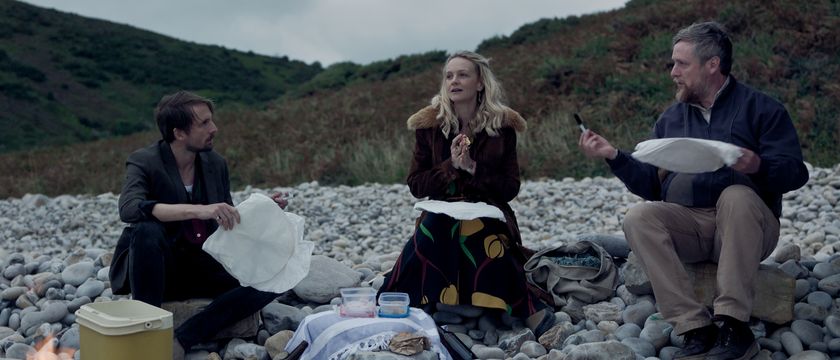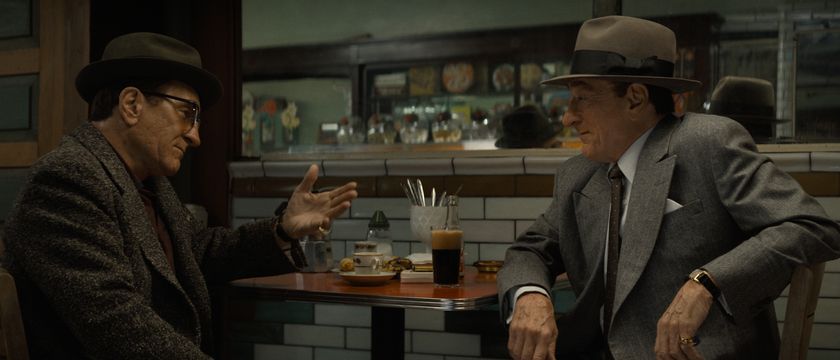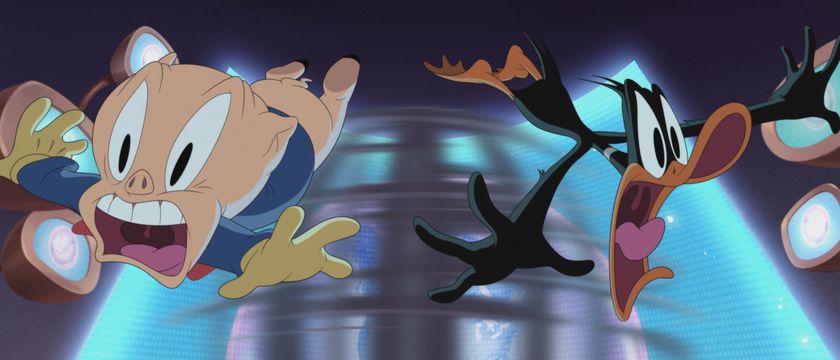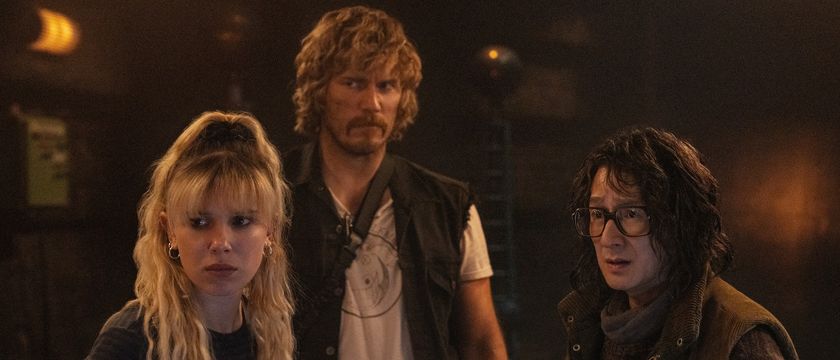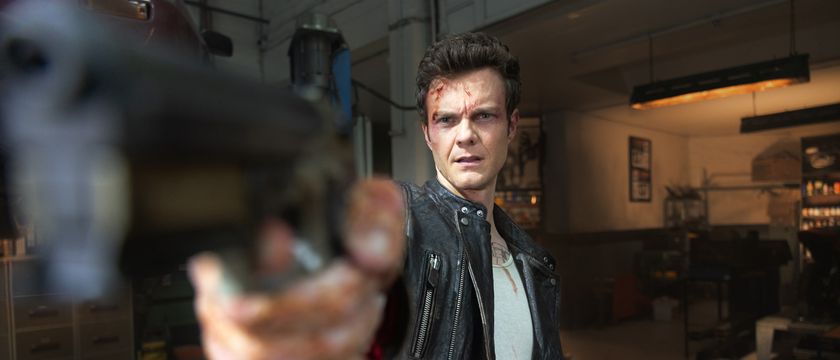Stonewall is Roland Emmerich’s passion project. The director, who’s an openly gay man himself, has been trying to develop the film for quite some time, but his other projects took precedent. According to the press notes, when he heard President Obama cite Stonewall among the other major stepping stones in our country’s battle for civil rights, he knew he needed to make this movie — which is why it pains me to admit that Stonewall, while not a horrible movie, is not worthy of calling itself a Stonewall movie.
We’ve seen documentaries (like Stonewall Uprising) and read books (like David Carter’s The Riots That Sparked the Gay Revolution). But there hasn’t been that one, signature feature film dramatizing the events. Emmerich’s film tries to commemorate the historic event, but it fails despite its intentions.
Emmerich’s Stonewall centers on a fictional character, Danny (Jeremy Irvine). Danny grew up in a small town in Indiana, but he was outed as gay and, being that it was the ‘60s in Middle America, his parents kicked him out of the house. He made his way to New York City, where he would be attending Columbia in the fall, and is welcomed into the circle of a small group of young, homeless, gay hustlers. Stonewall mostly centers on their lives struggling to make ends meet, suffering the violence inflicted upon them by the police, aggressive tricks, and the Mafioso who runs the Stonewall Inn (Ron Perlman plays historic figure Ed Murphy).
It’s only in the film’s final half hour or so that the riots are shown, and that’s what’s causing most of the controversy to swirl around the yet-to-open film. Some members of the LGBT community already have come out against the film because the trailers made it seem as though the story “whitewashes” the characters. Despite what Emmerich said in the past, saying this wasn’t his intention, it’s simply too difficult to ignore this glaring detail. There’s a moment in the film in which Danny (a white male with classically good looks played by a straight actor) takes a brick away from the black man so he could essentially throw it at the Stonewall Inn and spark the historic movement himself. In this brief, symbolic moment, he takes away history. That is how I viewed the scene.
In the packet of production notes given out to press before the film, there are quotes from Roland Emmerich and screenwriter Jon Robin Baitz about how no one “really” knows how the riots got started because many of the people who were actually there have died or do not want to reveal themselves. To some extent, that is true. But many of the supporting characters — including black trans woman and civil rights figure Marsha P. Johnson (Otoja Abit), and a young “femme” named Ray (Jonny Beauchamp) — are composites of multiple trans figures. While they served a larger role in the riots and overarching movement, they all serve to support Danny’s coming-of-age story in the film.
Emmerich’s Stonewall is Danny’s story. It’s a story about homeless LGBT youth, not the story of the Stonewall riots. And that’s okay, but calling it a film about Stonewall diminishes the overall impact of these events to someone unfamiliar with LGBT and American history. So, let’s look at this film more as a film about the homeless LGBT youth in NYC during the late ‘60s, and a young boy’s introduction into this world. Even then, though, Emmerich’s Stonewall fails. The story, at best, feels like a musical — but without the music. Most of the characters are enthusiastically generic. At worst, they are detrimental cliches of minorities, and a cliched LGBT character in an LGBT film is not okay.
There are emotionally charged moments in the film, such as when Danny finds Ray curled up in the fetal position after a trick beats him senseless (something we don’t see). Unfortunately, even those lose their intended impact, and act more as a secondhand look into these dark times. Danny, himself, is seeing everything from a certain degree of distance and, really, doesn’t have it as bad as his new friends who’ve so graciously accepted him without question into their lives. Perhaps if we felt a more emotional connection, the film could’ve been more interesting and more intense. What, perhaps, if the film were told from Ray’s perspective? Then we’d have someone who could actually show us the turmoil of forced prostitution, the death of a presumed lover by the exploitive mafia man, the struggles of trying to make a future for oneself in a homophobic culture, or even the stigma against feminine-acting men that’s still prevalent within the gay community. Instead, what we have is Danny -- a character with whom a mainstream audience is more comfortable, but who could’ve represented so much more.
When we finally get to the riot — not riots, but riot — it proves to be one of the film’s better moments, but you still want more. I remember watching MILK, feeling anger and the intense wave of excitement prickling my skin as the characters shouted, “Civil rights or civil war!” That’s what I wanted but never got from Emmerich’s Stonewall. The riots themselves lasted for four nights, but in the film only the first one is touched upon in the final 30 minutes of the film — which, again, makes Emmerich’s Stonewall more of a film about the homeless than it is about the Stonewall riots.
I realize it may be annoying to constantly refer to the film as Emmerich’s Stonewall instead of Stonewall, but it’s important to make this distinction that it isn’t really about Stonewall. I believe no one intentionally sets out to make a bad film, and the director certainly had the best intentions and wanted to do right by this moment. Sadly, things like this can happen. I just hope that, sooner than later, we finally get the Stonewall movie we rightfully deserve. If we can have three Steve Jobs movies within a year’s time, we certainly have that.
